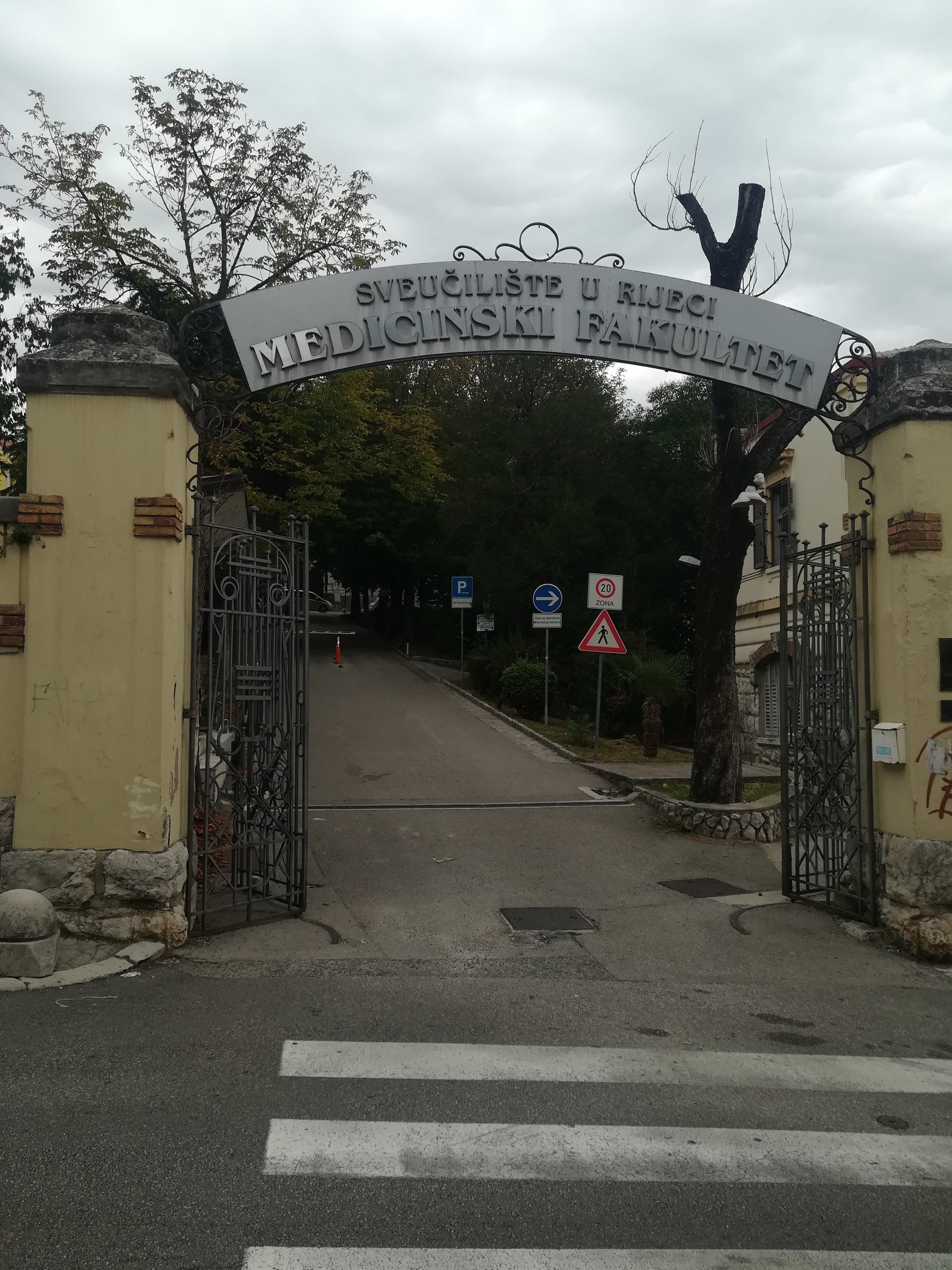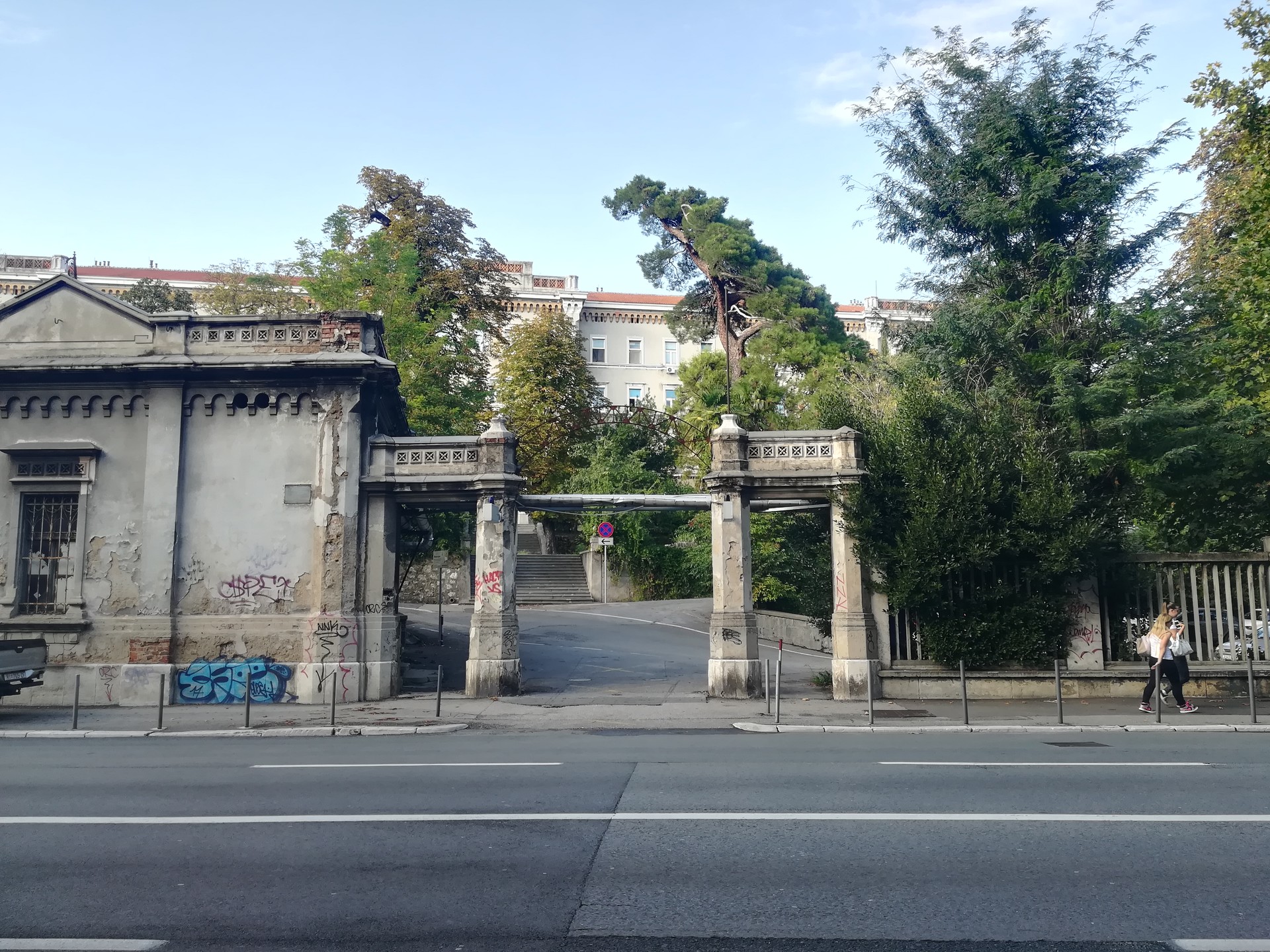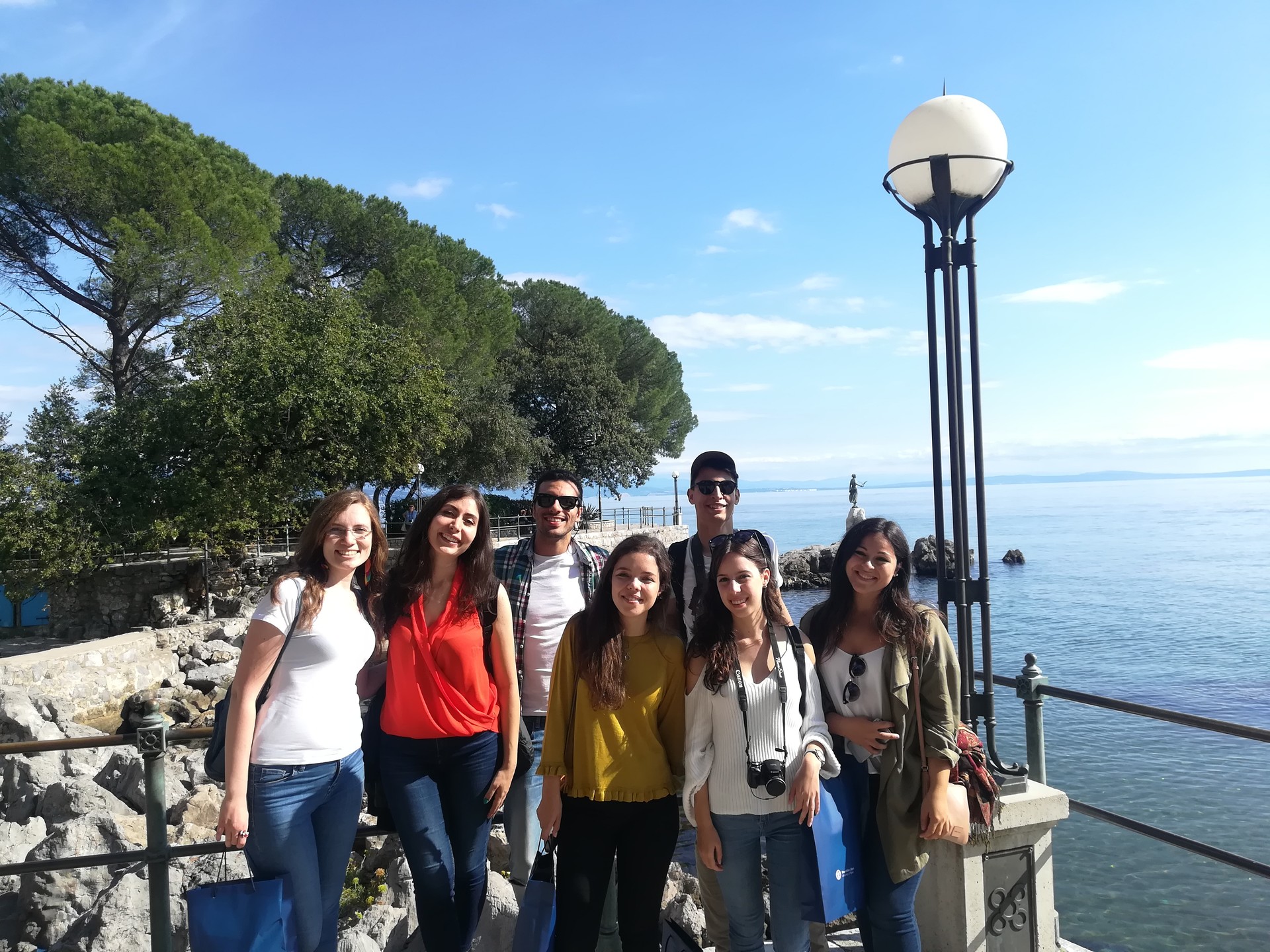Erasmus Through the Eyes of a Medical Faculty Student
Hello dear readers, let me introduce myself first. I am Elif who is a senior student at Ankara University Faculty of Medicine. In the past September, October and November, I had my first abroad experience with the Erasmus program. I spent 3 months in the coastal city of Croatia named Rijeka. When I had the opportunity, I went to other cities in Croatia and to famous cities of the neighboring countries. I am happy to share information about the places I've visit here with you.
You may have wonder why I chose the title "Erasmus Through the Eyes of a Medical Faculty Student" and you may even think that "These medical doctors can't help saying that they are studying medicine. " The situation is that for us medical students, the Erasmus process works a little differently from other departments. Thus, we are more reluctant to go to Erasmus than other students. So I wanted to write my first post in a way that can help medical school students who want to go to Erasmus but who have question marks on their heads.
First of all, for us, the best time for erasmus is the final year, which is the year of internship. Because in the first 3 years, theoretical exams of the basic sciences, laboratory exams and finals challenge us even in our own language. In addition, in Turkey every medical school has its own way with their own systems in terms of lessons so it is hard to find the same system in a different country where the lessons get up with the lessons we take from our home university. Then comes the clinical period, which are 4th and 5th years. In these two years, our exams are mostly verbal. Again, it does not seem possible to take these lessons in a different language and in a different system which we can not match with one another. Frankly, I do not know anyone who went abroad with the exchange program before the 6th year who was able to match her/his lessons with one another. That's why I can't give much information about exchange related to those years. If anyone knows the essence of the matter, he/she can also inform me.
So I can talk about how the erasmus process works in the internship year, now. In my university, which is Ankara University Faculty of Medicine, 2 months internal medicine, 1 month general surgery, 1 month gynecology, 1 month family medicine, 1 month public health, 2 months pediatrics, 2 months emergency, 1 month psychiatry and 1 month rotation are done in an elective department. During Erasmus, we are allowed to rotate abroad in pediatrics, internal medicine, general surgery, gynecology and psychiatry. We have to take the remaining parts, namely family medicine, public health, emergency and elective internship in our own school. If we go abroad with internship mobility, we can increase the duration to at least 2 months, and if we go abroad with learning mobility, it can be up to 6 months, at least 3 months. In other words, as in other departments, the time we spend can vary depending on the number of rotations we want to do there, not in the form of 1 semester or 2 semesters. I performed 2 months internal medicine and 1 month general surgery at the Rijeka University Faculty of Medicine Hospital. Rijeka University Hospital serves in 3 different campuses. In addition to the central KBC Rijeka, it also serves in Sušak and Kantrida.
 Rijeka University School of Medicine
Rijeka University School of Medicine
I did a Hematology rotation in KBC Rijeka in 1 month of my 2 month internal medicine rotation. On the first day, they showed me the emergency room, the ultrasonography room and the patient rooms lying on the hematology floor. I already knew that I was not allowed to perform invasive procedures on patients. When I said that I wanted to attend the visits, they said that the visit hours were not clear at all, while the person who was responsible could do the visit at 10 o'clock and another person who was responsible could do the visit at 6 o'clock. Since I did not intend to go at 6 a. m., I started to go at 9 a. mm on the following days. Unfortunately, I could not come across any visit in hematology. Some days, we went to the USG room and talked to the patients in the form of question and answer with the assistant. Also, I participated in a bone marrow biopsy several times. They were not very interested in me as things were generally intense in hematology. I had no obligation to go every day there anyway.
 KBC Rijeka Hospital
KBC Rijeka Hospital
In my second month, I shifted to Chest Department in KBC Sušak. Although it was not as dense as hematology, it was still a very dense section. But at least I had the chance to attend the visits here. Of course they spoke Croatian so that the things at the visits could move fast. But the assistants translated the most important things, not everything, into English for me when I asked for. I was asking about the things I wondered from time to time. They also allowed me to examine patients with different examination findings. In this respect, I can say that it was more productive than hematology. In the Chest department, it was not compulsory to go every day in the same way. Even the department head said to me clearly, "You don't have to come everyday, you're free to go and travel as much as you want. " Well, I said that the command comes from a big place. :)
In my third month, I performed a general surgery rotation in KBC Sušak. Here they told me that I could spend time in the branch of surgery I wanted. I chose Thorax surgery, but I was still allowed to follow the surgery I wanted. I did not take an active role in the surgeries, they allowed a friend who was in operation with the teacher responsible for Erasmus students to hold a retractor. Maybe we could be allowed to suture, but I couldnWT do it either. Frankly, I went to hospital in General Surgery Department less than I did in the previous months. It was already my last month in Rijeka. So, I wanted to travel as much as I could. The comfort of being a surgeon also helped a lot. :)
One of the biggest reasons why we, as medical students, approached the idea of going to Erasmus hesitantly is the concern of TUS rush in the final year. While many of our friends are studying, we find ourselves in a completely different life in a different country, and even if we have the hope of studying on the way to this new country, we are not able to do this much. As someone who has been to Erasmus and has been has not studied for more than 7-8 hours for three months, I think: It is worth living this experience. I am far behind my friends but I did not regret once that I had been here. Every day I lived was so beautiful and meaningful to me... Of course I did not go to an event every day. But every day of the 3 months gave me an experience and taught me something. I met people in Rijeka who I would never have met in those three months in my own country if I spent my time in Ankara. I shared a house with 2 Croatian people. I attended many beautiful Erasmus events, I also took part in several of them. I visited many beautiful places. While traveling, I researched and learned the history of the places. I have accumulated memories that I will never forget for a lifetime. After that, my life will pass in the hospital and I will study until I win TUS. But if I hadn't been there, I would not have had a chance to live those 3 months. That's why I say that I am glad to have lived this experience. If the Erasmus exam period of yours is approaching and you come across my article, listen to my proposal and take the exam. You won't lose anything, but you can earn a lot.
I tried to explain as much as I can about the experience of Erasmus for a medical school student. If you have additional questions, you can contact me. See you in my articles about places I visit and of course Rijeka...
 From someday in Opatija with my friends I met in Rijeka
From someday in Opatija with my friends I met in Rijeka
Photo gallery
Content available in other languages
Share your Erasmus Experience in University of Rijeka!
If you know University of Rijeka as native, traveler or as exchange student... share your opinion on University of Rijeka! Rate different characteristics and share your experience.
Add experience →





















Comments (0 comments)